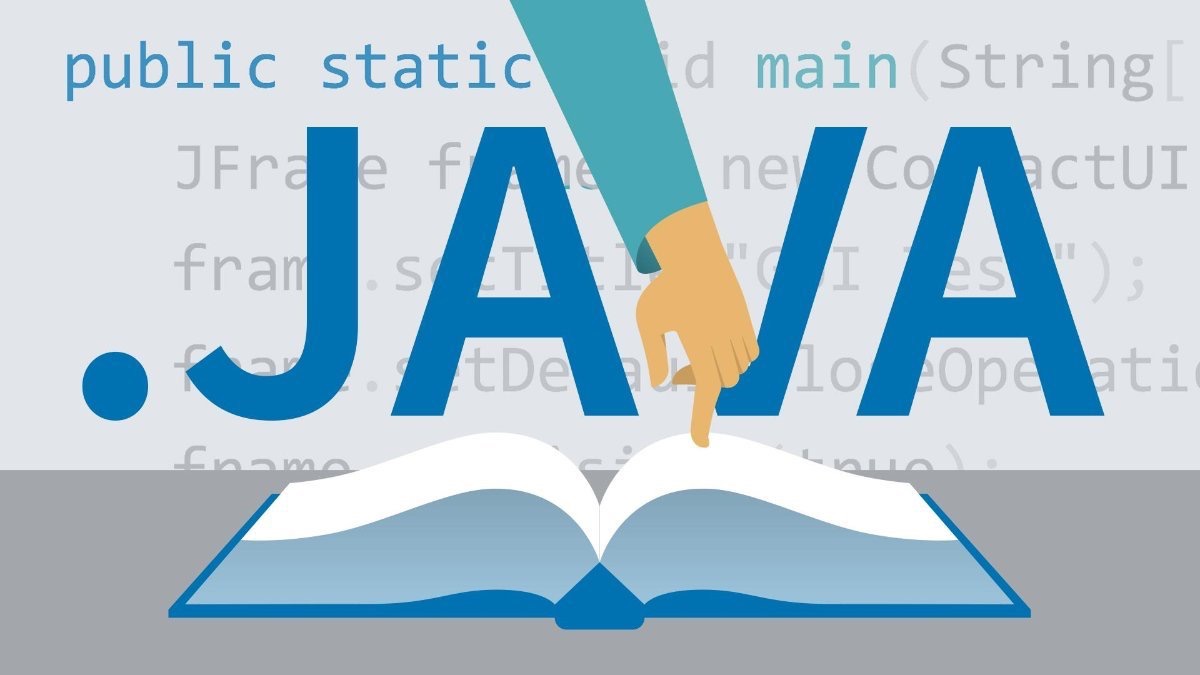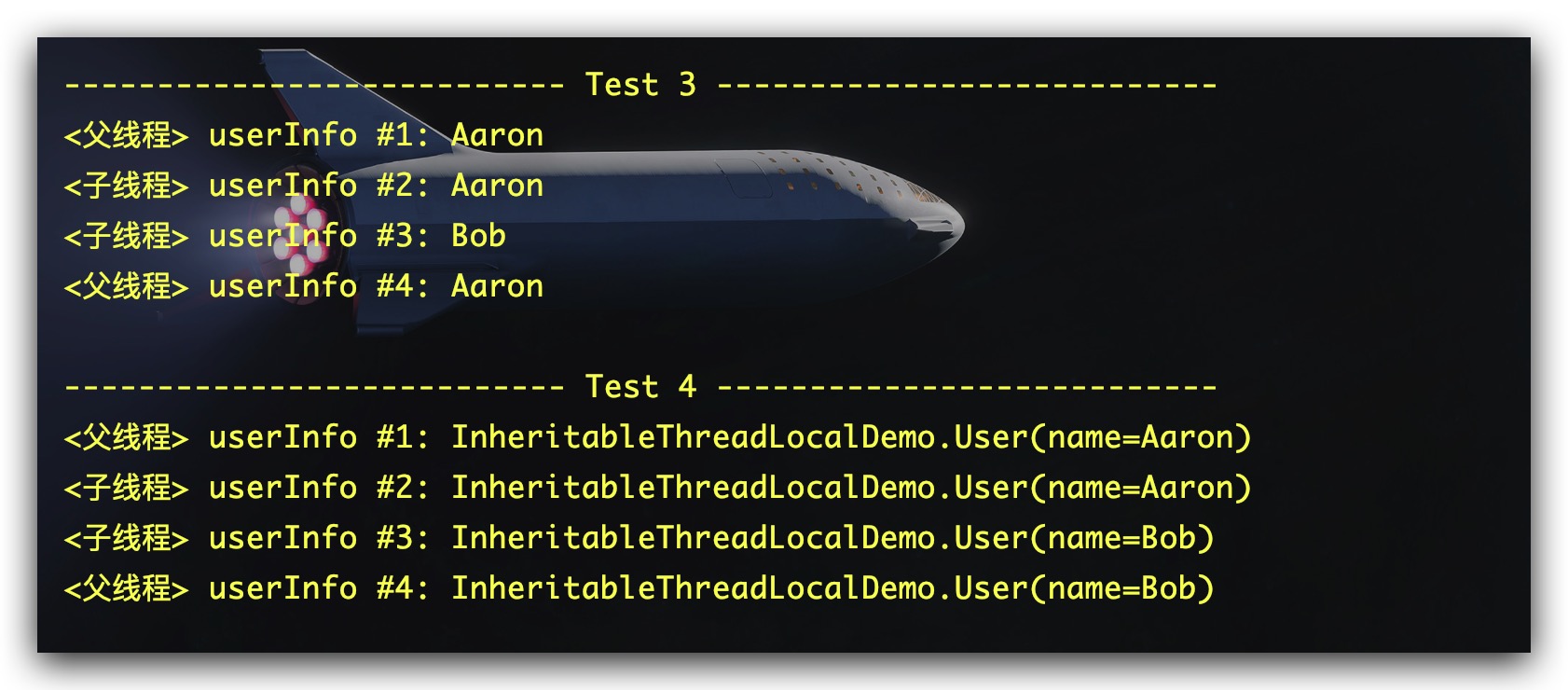针对ThreadLocal不可继承的特点,Java还引入了InheritableThreadLocal类,顾名思义其是可以继承的

基本实践
ThreadLocal的不可继承性指的是子线程无法继承获取到父线程中的值。而InheritableThreadLocal则通过继承ThreadLocal类实现了可继承性。测试代码如下所示
1
2
3
4
5
6
7
8
9
10
11
12
13
14
15
16
17
18
19
20
21
22
23
24
25
26
27
28
29
30
| @FixMethodOrder(MethodSorters.NAME_ASCENDING)
public class InheritableThreadLocalDemo {
@Test
public void test1() {
System.out.println("\n--------------------------- Test 1 ---------------------------");
ThreadLocal<String> userInfo = new ThreadLocal<>();
userInfo.set("Aaron");
new Thread( ()-> System.out.println("<子线程> userInfo: " + userInfo.get()) )
.start();
System.out.println("<父线程> userInfo: " + userInfo.get());
}
@Test
public void test2() {
System.out.println("\n--------------------------- Test 2 ---------------------------");
InheritableThreadLocal<String> userInfo = new InheritableThreadLocal<>();
userInfo.set("Aaron");
new Thread( ()-> System.out.println("<子线程> userInfo: " + userInfo.get()) )
.start();
System.out.println("<父线程> userInfo: " + userInfo.get());
}
}
|
测试结果如下,符合预期

基本原理
其基本原理也很简单,该类继承了ThreadLocal并重写了下述的三个方法。众所周知,ThreadLocal是通过Thread类中ThreadLocal.ThreadLocalMap类型的threadLocals字段实现线程本地存储的。而InheritableThreadLocal则是使用Thread类中ThreadLocal.ThreadLocalMap类型的inheritableThreadLocals字段。其实现如下
1
2
3
4
5
6
7
8
9
10
11
12
13
14
| public class InheritableThreadLocal<T> extends ThreadLocal<T> {
protected T childValue(T parentValue) {
return parentValue;
}
ThreadLocalMap getMap(Thread t) {
return t.inheritableThreadLocals;
}
void createMap(Thread t, T firstValue) {
t.inheritableThreadLocals = new ThreadLocalMap(this, firstValue);
}
}
|
而其继承性的实现也很简单,即在子线程创建阶段通过init方法将将父线程的inheritableThreadLocals浅拷贝到子线程中,Thread实例创建过程中相关源码部分实现如下
1
2
3
4
5
6
7
8
9
10
11
12
13
14
15
16
17
18
19
20
21
22
23
24
| public class Thread implements Runnable {
public Thread(Runnable target) {
init(null, target, "Thread-" + nextThreadNum(), 0);
}
private void init(ThreadGroup g, Runnable target, String name, long stackSize) {
init(g, target, name, stackSize, null, true);
}
private void init(ThreadGroup g, Runnable target, String name,
long stackSize, AccessControlContext acc, boolean inheritThreadLocals) {
...
Thread parent = currentThread();
...
if (inheritThreadLocals && parent.inheritableThreadLocals != null)
this.inheritableThreadLocals = ThreadLocal.createInheritedMap(parent.inheritableThreadLocals);
...
}
}
|
前面提到子线程虽然继承了父线程的值,但其是通过浅拷贝的方式进行的。下面通过示例代码来验证下
1
2
3
4
5
6
7
8
9
10
11
12
13
14
15
16
17
18
19
20
21
22
23
24
25
26
27
28
29
30
31
32
33
34
35
36
37
38
39
40
41
42
| @FixMethodOrder(MethodSorters.NAME_ASCENDING)
public class InheritableThreadLocalDemo {
@Test
public void test3() throws Exception {
System.out.println("\n--------------------------- Test 3 ---------------------------");
InheritableThreadLocal<String> userInfo = new InheritableThreadLocal<>();
userInfo.set("Aaron");
System.out.println("<父线程> userInfo #1: " + userInfo.get());
Thread thread = new Thread( ()-> {
System.out.println("<子线程> userInfo #2: " + userInfo.get());
userInfo.set("Bob");
System.out.println("<子线程> userInfo #3: " + userInfo.get());
} );
thread.start();
thread.join();
System.out.println("<父线程> userInfo #4: " + userInfo.get());
}
@Test
public void test4() throws Exception {
System.out.println("\n--------------------------- Test 4 ---------------------------");
InheritableThreadLocal<User> userInfo = new InheritableThreadLocal<>();
userInfo.set( new User("Aaron") );
System.out.println("<父线程> userInfo #1: " + userInfo.get());
Thread thread = new Thread( ()-> {
System.out.println("<子线程> userInfo #2: " + userInfo.get());
userInfo.get().setName("Bob");
System.out.println("<子线程> userInfo #3: " + userInfo.get());
} );
thread.start();
thread.join();
System.out.println("<父线程> userInfo #4: " + userInfo.get());
}
@AllArgsConstructor
@Data
private static class User {
private String name;
}
}
|
测试结果如下,符合预期

参考文献
- Java并发编程之美 翟陆续、薛宾田著



